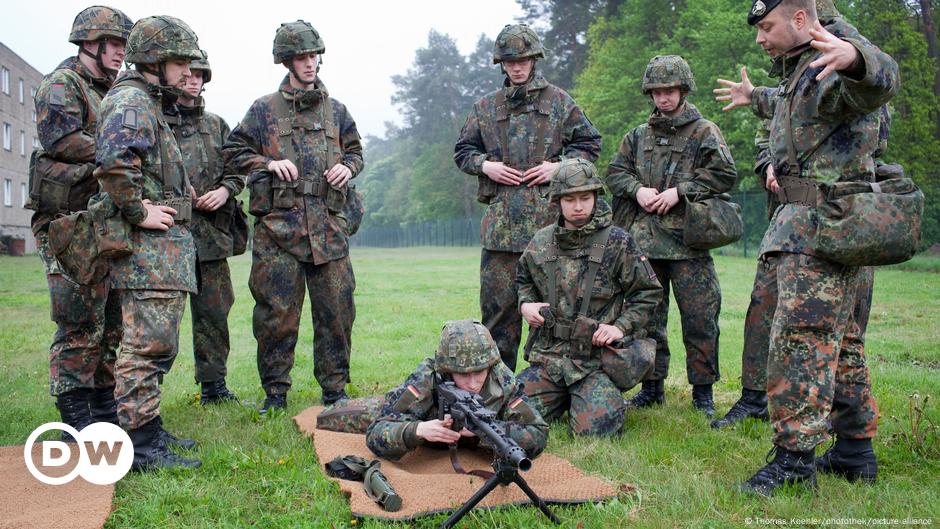Summary
Germany’s government approved a draft law requiring young men to indicate their willingness to serve in the military, aiming to increase military participation without reintroducing conscription.
The survey will target around 300,000 18-year-old males in 2024, with young women given the option to participate. This initiative follows years of recruitment challenges since Germany ended compulsory service in 2011.
With a growing focus on defense in response to Russian aggression, Germany seeks to increase its military personnel from 180,000 to 203,000 by 2030.



And field hospitals can’t be near front lines? If with “near the front” you mean “you’re running around with a sidearm” then that’s a combat role, combat mechanic isn’t a non-combat role, the actual maintenance is just as far back as hospitals are.
You cannot interpret “harsher” freely, without taking account what I called harsher, after the colon: Women who don’t have the stomach to go into the medical field don’t have an out, legally speaking. While the law says “Not all men are fighters”, it is saying “all women are nurses”. You see the difference in essentialism there, don’t you?
No, i meant field medic. As in, giving first aid in helicopters or trucks as they drive away ferrying the wounded from the front lines, brought by their comrades. These are jobs that traditionally they don’t give to women. They put women in the hospitals on the back and use men in the transportation and first aid, although sometimes women do volunteer to do this job like it happened in Ukraine.
As for a mechanic, if you’re fixing an anti air system or a tank, you’re pretty much next to the frontlines. You’re just not shooting at the enemy, but you’re still shot at by artillery or missiles. Combat engineers would be shooting at the enemy, but maintenance personnel are not. Those are specialized military personnel, not draftees. They’re not deployed to push a frontline or defend a position, so they’re not really combat roles. Although I’m not completely sure about it and if someone knows more about this than me, I’d sure like to learn about it.
Being in medical doesn’t necessarily mean you will be taking care of shredded soldiers. There’s tons of jobs in medical, such as ressuply of medicine cabinets, transportation of medical equipment to and from medical rooms, transportation of sick people in medical beds, post operation medicine, feeding and bathing soldiers, etc. If you’ve got a weak stomach, they don’t want to put you in a position where you would pass out, then they have to take care of you too. But i can appreciate that it’s hard on women too, of course. Nobody deserves the misery that war brings.
When you’re drafted though, you’re screwed whether you’re a man or a woman. My father volunteered when my country was at war and they started drafting people so he could avoid the frontlines and got a real nice job working in long range radar maintenance. I think I’d probably do the same if i were in that position. You get to pick where you go if you volunteer.
If you’re in artillery range that’s a combat role. Definitions may differ but you’re “serving at arms”.
…and, no, when Ukraine is sending in a Leopard or such for repair they’re not doing it on the frontlines. The service centre is in Poland, the frontline is too much of a fickle place to have big cranes, stacks of turrets and chassis to mix and match, etc. That’s a different thing from a shop a bit back from the frontline that can do “extended field repairs”, say, replace a track, or switch other parts that are designed to be easily replaced. Those places are at least semi-mobile and part of the tank battalion.